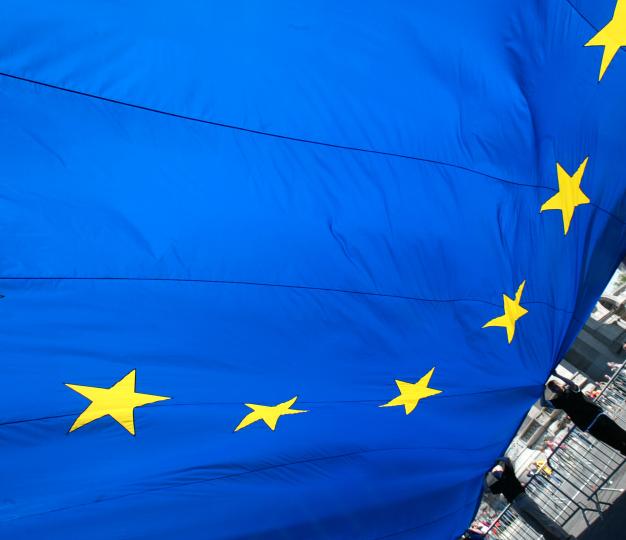The European Union and Chile
Political and economic relations between the European Union and Chile are framed by the 2002 Association Agreement. The European Union and Chile signed a new EU-Chile Advanced Framework Agreement in December 2023. Thus, Chile became the first country in the region to sign a next generation agreement with the EU.
The European Union has a multidimensional relationship with Chile through close cooperation with the Government, civil society, the private sector, universities and citizens.
Political Relations
The European Union and Chile are close partners who share the values of freedom, democracy, human rights, the promotion of multilateralism as well as free and rules-based trade.
Chile and the EU established diplomatic relations 55 years ago in 1967. Chile was the first country in Latin America to have a local representation of the Union and the first country to sign an Association Agreement with the Union in 2002 that includes three pillars: dialogue political, cooperation and trade.
Political dialogue meetings are held regularly at all levels in the framework of the Association Committees and Association Councils. These allow assessing the implementation of the Association Agreement in its three dimensions (political, trade and cooperation pillars), the fulfilment of mutual commitments, as well as collaboration in areas of common interest.
In addition, structural political dialogues on Human Rights, Ocean Governance or climate change take place to deepen bilateral and multilateral cooperation in these areas.
The EU and Chile have signed an agreement in 2015 for the participation of Chile in the crisis management operations of the European Union, as in EUFOR Bosnia Herzegovina since 2005.
There is also a regular dialogue between parliamentarians of both parties through the EU-Chile Joint Parliamentary Committee.
The EU-Chile Joint Consultative Committee was created between the European Economic and Social Committee (EESC) and Chilean civil society partners and organisations. It allows civil society organisations from both parts to address issues of common interest and to monitor the updating of the Association Agreement.
Furthermore, the European Union is observing with great interest the constituent process in Chile that will define the future trajectory of the country. Within this framework, the European Union Delegation in Chile and the EU Member States have decided to make themselves available to share European experiences on constitutional processes and content through the Chile-European Union Forum initiative.
Economic and Trade Relations
The EU’s economic relations with Chile intensified since the signing of the Association Agreement in 2002, which represented a milestone in the international economic relations of both parties, being one of the most extensive, deep and modern bilateral agreements signed at the time. Since the entry into force in 2003 of the trade pillar of the Agreement, bilateral trade has more than doubled, with an average annual expansion rate of 5 %, making the EU the first foreign investor and Chile’s third largest trading partner. In November 2022, the EU and Chile concluded negotiations for the modernisation of their Association Agreement in order to deepen it and tackle the challenges that currently characterise international trade: these include sustainable trade, gender equity and environmental standards.
In 2022, EU-Chile trade reached a value of EUR 18.502 billion. According to Eurostat and Central Bank figures, the EU FDI stock reached EUR 54.085 billion in 2021, accounting for 35.44 % of total foreign investment in Chile.
As a result of the agreement, the EU is today the first investor in Chile. European companies have a presence in virtually all sectors of the economy, thus contributing to job creation, technology transfer and innovation. Its presence in new sectors, such as renewable energy, in which they are pioneers should be highlighted.
Trade between the European Union and Chile is multisectoral. The Agreement has contributed to the diversification of Chile’s export basket, reducing dependence on copper and increasing exports of agricultural and industrial goods. Fruit, wine or seafood, for example, have been large beneficiaries, with two-digit growth for many years.
The EU imports agricultural products (38.5 %), other mining products (20.3 %), copper (21.4 %) and chemicals (14.7 %) from Chile.
The Agreement has facilitated value chains and the intensification of production chains. Almost two thirds of Chile’s imports from the EU are intermediate and capital goods, used for the production in Chile of other products, both for the domestic market and for export to third countries. Since the entry into force of the Agreement, imports of intermediate and capital goods between Chile and the EU have grown annually by 6.5 % and 12.9 % respectively.
Exports from the EU to Chile mainly consist of industrial products such as machines and electrical equipment (27.5 %) vehicles and aircraft (17.3 %).
As regards services, the EU imported a total value of EUR 1,576 billion in 2021, mainly characterised by transport transactions (EUR 885 billion). Exports, by contrast, reached EUR 4,378 billion, in this case too the total was heavily influenced by transport services (EUR 1,602 billion).
The Association Agreement has also given a major boost to Chilean SMEs, who have been able to seize the opportunity to open up markets. Almost 40 % of Chilean companies exporting to the EU are SMEs.
Highlights, among the types of support that the EU provides to foreign companies in the process of internationalization, the Access2Markets page, a free database that makes it easy to obtain important information for trading from or to the European Union and the Enterprise Europe Network, the largest support network for SMEs through internationalisation and access to technology. There is also the European Digital Innovation Hubs Network, a pan-European initiative aimed at accelerating digital transformation in the EU and partner countries, and the Low Carbon Business Action LATAM, a free business platform for the development of relations between EU low-carbon technology suppliers and companies seeking sustainable solutions in Argentina, Brazil, Chile and Colombia.
In November 2022, the EU and Chile concluded negotiations for the modernisation of the Agreement, deepening it and addressing the challenges that currently characterise international trade: these include sustainable trade and environmental standards, gender equity, inclusion of SMEs, digital trade, etc.
More information on: macroeconomics; detailed trade exchange report; SUBREI; European Commission.
EU – Chile Cooperation: a brief overview
As a high-income country, Chile is ineligible for bilateral cooperation funds. However, it can participate in global and regional EU programmes in areas such as: governance and human rights, climate change, sustainable growth and employment, digitalisation, science and technology, education, and culture.
The EU supports Chile in the design and implementation of public policies through programmes such as Euroclima for climate change, EUROsociAL for social cohesion, and various programmes in the area of crime and security, including EL PAcCTO for transnational organised crime, COPOLAD for the fight against drugs, GLACY for cybercrime, and EUROFRONT for border management.
The Global Gateway Investment Agenda is the EU's strategy for creating smart, sustainable, and secure connections in the digital, climate change and renewable energy, transport, health, education, and research sectors, in line with the European Green Deal. In Chile, the Agenda includes the following key initiatives:
- The Team Europe Initiative (TEI) for developing renewable hydrogen in Chile,
- The promotion of sustainable value chains for critical raw materials,
- The Copernicus Regional Centre for Latin America and the Caribbean (CopLAC-CHILE).
The EU-LAC Digital Alliance represents another relevant pillar of cooperation between Chile and the EU. With the creation of the Copernicus Regional Center, the commitment of both blocs to promote research, innovation, and the development of technological solutions to address global challenges is solidified.
Alliance with Civil Society
Civil society organisations are crucial partners due to their deep understanding of local needs. The EU supports society through the thematic lines "Civil Society Organisations" (CSO) and "Human Rights and Democracy" (HR&D), whose objectives are to contribute to the strengthening of civil society as independent actors for the promotion of sustainable development, good governance, the strengthening of democracy, and the promotion and defense of human rights in Chile.
To learn more about the projects, visit this page.
Cultural Ties
The close cultural ties that, for historical reasons, the EU Member States maintain with Chile are reflected in an active cultural promotion policy that contributes to consolidating cultural and trade relations between Europe and Chile.
These policies include:
- Promoting academic relations between higher education institutions, through the Erasmus+ programmes.
- Organizing arts festivals, such as the European Film Festival, which in 2023 celebrated its 25th edition, and the Jazz ChilEuropa Festival, which celebrated its 11th edition.
- Celebrating Europe Day (9 May), an occasion to display the European culture in all its diversity.
Additionally, a number of European cultural centres are present in Chile, offering a varied cultural program as well as language classes to the Chilean public:
They are part of EUNIC, the network of European National Institutes of Culture.


